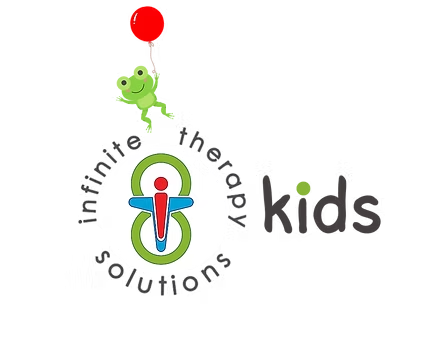Also supporting children with other developmental and behavioral needs.
Pediatric feeding therapy for children with autism
Every child deserves healthy eating habits and enjoyable family meals. Our feeding therapy program is tailored for children with autism and their specific needs.
We address sensory, oral-motor, and behavioral challenges with evidence-based methods, offering personalized support to each family.
We’ve helped many families turn mealtimes into positive experiences. Our therapists create customized strategies to improve eating and quality of life.

Why Our Approach to Feeding Therapy Works
Transforming mealtime challenges into positive experiences through specialized, family-centered care that addresses the whole child.
ABA-Based Feeding Techniques
Our pediatric feeding therapy for autism utilizes proven Applied Behavior Analysis (ABA) techniques specifically adapted for feeding challenges. This evidence-based approach helps children develop positive associations with food and mealtimes through systematic, individualized interventions.
Comprehensive Component Addressing
We address all three critical components of feeding difficulties: sensory processing challenges that affect food acceptance, oral-motor skills necessary for safe swallowing, and behavioral components that influence mealtime participation and food exploration.
What Makes Us Different
Our unique combination of expertise, personalization, and family-centered care sets us apart in feeding therapy services.
Specialized autism expertise with evidence-based feeding interventions
Family-centered approach with ongoing parent training and support
Flexible service delivery including in-home therapy options
Our Comprehensive Feeding Therapy Framework
Our feeding therapy framework uses a multidisciplinary, research-based approach to address the root causes of feeding challenges in children with autism. By combining specialized techniques with family involvement and practical home strategies, we ensure consistent progress that leads to lasting improvements in mealtime experiences.
Where to Start for Feeding Therapy
Beginning your child’s feeding therapy journey can feel overwhelming, but you don’t have to navigate this process alone. The first step is recognizing that feeding difficulties in children with autism are common and treatable. Whether your child is experiencing food selectivity, sensory aversions, or mealtime behaviors that concern you, early intervention can make a significant difference in their development and your family’s quality of life. Our team is here to guide you through every step, from initial consultation to ongoing support.
Why Skip Feeding Therapy Clinics?
Traditional feeding therapies often use a generic approach that doesn’t meet the specific needs of children with autism. Many clinics lack the specialized training to address the connection between sensory processing, communication, and behavior. In addition, progress made in clinics rarely carries over to the home, and without family training or environmental adjustments, improvements don’t last—leaving families frustrated and children without lasting change.
Infinite's Approach to Feeding Therapy in NJ
At Infinite, we specialize in autism-related feeding challenges, combining traditional and autism-specific techniques to fully support each child. With options like in-home therapy, we help families see faster, lasting progress by ensuring skills transfer directly to everyday mealtimes.
Frequently Asked Questions
What is feeding therapy?
Feeding therapy is a specialized intervention that addresses eating and drinking difficulties in children. It focuses on improving oral-motor skills, addressing sensory sensitivities, and modifying behaviors that interfere with successful feeding. For children with autism, feeding therapy is tailored to address their unique sensory processing differences and communication challenges.
How often should my child attend OT?
The frequency of occupational therapy sessions depends on your child's individual needs and goals. Typically, children attend 1-3 sessions per week, with each session lasting 45-60 minutes. Our therapists will work with you to determine the optimal schedule based on your child's assessment results and progress.
What skills are addressed in occupational therapy?
OT addresses fine and gross motor skills, sensory processing, visual-motor integration, handwriting, daily living skills (dressing, eating, hygiene), social skills, attention and focus, executive functioning, and emotional regulation.
How do I know if my child needs speech therapy?
Signs that your child may benefit from feeding therapy include: extreme food selectivity (eating fewer than 20 foods), difficulty chewing or swallowing, frequent gagging or vomiting during meals, refusing entire food groups, mealtime tantrums or avoidance behaviors, poor weight gain, or taking longer than 30 minutes to eat meals.
Will my insurance cover autism therapy?
Many insurance plans cover occupational therapy for children with autism, especially when it's medically necessary. We work with most major insurance providers and will help you understand your coverage options. Our billing team can verify your benefits and assist with prior authorization if needed.
Is picky eating normal, or does my child need therapy?
While some degree of food selectivity is normal in childhood, extreme pickiness that affects nutrition, growth, or family functioning may require intervention. Children with autism often experience feeding difficulties that go beyond typical picky eating, involving sensory sensitivities and rigid behavioral patterns that benefit from specialized therapy approaches.
What is pediatric occupational therapy?
Pediatric occupational therapy focuses on helping children develop the skills they need for daily activities, learning, and play. For children with autism, this includes addressing sensory processing, motor skills, social interaction, and adaptive behaviors to improve their independence and quality of life.
What causes feeding difficulties in children?
Feeding difficulties can result from various factors including sensory processing differences, oral-motor challenges, medical conditions, behavioral patterns, or developmental delays. In children with autism, sensory sensitivities, need for routine and predictability, and communication challenges often contribute to feeding difficulties.
How do I know if my child needs occupational therapy?
Signs that your child might benefit from OT include difficulty with daily activities like dressing or eating, challenges with handwriting or fine motor tasks, sensory sensitivities, problems with attention and focus, or difficulties with social interaction. A comprehensive evaluation can help determine if OT is appropriate.
What ages do you treat in feeding therapy?
We provide feeding therapy services for children from infancy through adolescence (ages 0-18). Early intervention is often most effective, but children of any age can benefit from feeding therapy. Our approaches are adapted to be developmentally appropriate for each child's age and abilities.
What conditions or diagnoses does OT help with?
Occupational therapy can help children with autism spectrum disorders, ADHD, sensory processing disorders, developmental delays, cerebral palsy, Down syndrome, and various other conditions that affect daily functioning, motor skills, or sensory processing.
Who provides feeding therapy—an OT or an SLP?
Both occupational therapists (OTs) and speech-language pathologists (SLPs) can provide feeding therapy, often working collaboratively. OTs typically focus on sensory aspects and fine motor skills, while SLPs address oral-motor function and swallowing safety. Our team includes both disciplines to provide comprehensive care.
How is occupational therapy different from physical therapy?
While physical therapy focuses primarily on gross motor skills, strength, and mobility, occupational therapy addresses fine motor skills, sensory processing, daily living activities, and the integration of skills needed for meaningful participation in daily life activities.
Is feeding therapy only for children with autism?
No, feeding therapy can benefit children with various conditions including developmental delays, sensory processing disorders, cerebral palsy, and other medical conditions. However, our program specializes in autism-specific feeding challenges, using evidence-based approaches tailored to the unique needs of children on the spectrum.
What happens during an occupational therapy session?
OT sessions are typically play-based and engaging, incorporating activities that target specific goals. Sessions may include sensory activities, fine motor tasks, games that promote social skills, and practice with daily living activities. Each session is tailored to your child's interests and needs.
What does a typical feeding therapy session look like?
Sessions typically include structured food exploration activities, oral-motor exercises, sensory desensitization techniques, and behavioral interventions. We use play-based approaches to make therapy engaging and positive. Parent coaching is integrated throughout to ensure strategies can be implemented at home between sessions.
Is occupational therapy helpful for children with autism?
Yes, occupational therapy is highly beneficial for children with autism. Research shows that OT can significantly improve sensory processing, motor skills, daily living abilities, and overall quality of life for children on the autism spectrum.
How long does feeding therapy usually take?
The duration of feeding therapy varies depending on the child's specific needs and goals. Some children show progress within a few months, while others may benefit from longer-term intervention. We regularly assess progress and adjust treatment plans to ensure optimal outcomes. Most families see meaningful improvements within 3-6 months of consistent therapy.
Can OT help with handwriting or school performance?
OT can significantly improve handwriting skills, fine motor coordination, visual-motor integration, attention, and organizational skills that are essential for academic success. We work closely with schools to support your child's educational goals.
Do you offer in-home feeding therapy or only in-clinic?
We offer both in-home and clinic-based feeding therapy services. In-home therapy is often preferred for feeding interventions as it allows us to work in your child's natural eating environment and train family members in real-time. This approach typically leads to faster generalization of skills and more sustainable progress.
Ready to Start Your Child's Journey?
Take the first step towards helping your child reach their full potential. Schedule a comprehensive evaluation with our pediatric physical therapy team today.


